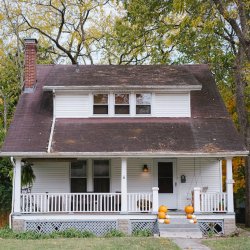Wildfire Preparation
California has been hit by numerous wildfires this year. Wildfires can cause a significant amount of damage. They can injure or kill people and animals and cause damage or destruction to homes and businesses. Wildfires can also disrupt community services such as access to communications, transportation, power and gas. The impact may affect hundreds of thousands of acres, as was the case with the recent Wine Country Fires, which impacted over 250,000 acres. The smoke, fire and burning embers can cause health issues even for those who are not in the fire's path.
Where Do Wildfires Occur?
Wildfires can occur anywhere. They may start in remote areas or even your backyard. Most are caused by humans, such as though campfires, cigarettes, or improper maintenance of power lines and transformers. Given the magnitude of wildfires in California in 2017, from the Thomas Fire in Ventura County to the Wine Country Fires, it’s important to know how to protect yourself, your family and your property. With the below tips, you can take the appropriate steps so that you are prepared in the event that your home or business is impacted by wildfire.
When Do Wildfires Occur?
Wildfires can occur at any time, but they tend to occur more frequently in dry weather, like the summertime. A lack of rainfall can make grass, trees and brush more prone to burn. Heavy winds can also cause wildfires to spread quickly.
Fire Weather Watch
The National Weather Service (NWS) will issue warnings when extreme weather conditions increase the risk of wildfire. It will issue a fire weather watch when residents can expect dangerous fire weather conditions over the next 12-72 hours. A fire weather warning will be issued when weather patterns over the next 24 hours may cause a fire danger to exist.
Preparing For A Wildfire
If your home or business is in the fire zone, take these steps:
- Turn on your TV or radio. Listen to the news for the latest weather updates.
- Know where to go. There are often evacuation centers in the area. If not, make sure that your family has a plan of where you will go.
- Prepare your car. Fill your car's gas tank and ensure your vehicle is in good working order. Stock the car with emergency supplies and several days worht of clothes.
Evacuation Orders
Be ready to evacuate if there is a fire in your area. Call 911 if you see a fire or a downed power line which can cause a fire if it comes into contact with grass, trees or other flammable materials. If you are ordered to evacuate, do so immediately.
Before evacuating your home, take these steps:
- Leave your home unlocked, but close all doors and windows.
- Remove all flammable window coverings.
- Leave the lights on inside and outside.
- Shut off gas and air conditioning.
- Turn off sprinklers.
- Take your pets with you
Returning Home After a Wildfire
Do not return home until authorities have indicated that it is safe for you to do so. When you do return home, check and re-check your home and property for sparks, embers and smoke. Use caution when entering burned areas and evacuate immediately if you smell smoke.
When cleaning your home, make sure to wear a dust mask and leather gloves. Wet down debris prior to removal, so you breathe in less dust. Throw out any food that has been exposed to any fire elements, such as smoke or ash. Wash all pots and pans with soapy water prior to use. Do not use any water which has been contaminated by debris, ash, smoke, etc; .
Damaged drywall and insulation will need to be replaced. Assess the damage in your home and take photos to send to your insurance company.
More to Read:
Previous Posts:


